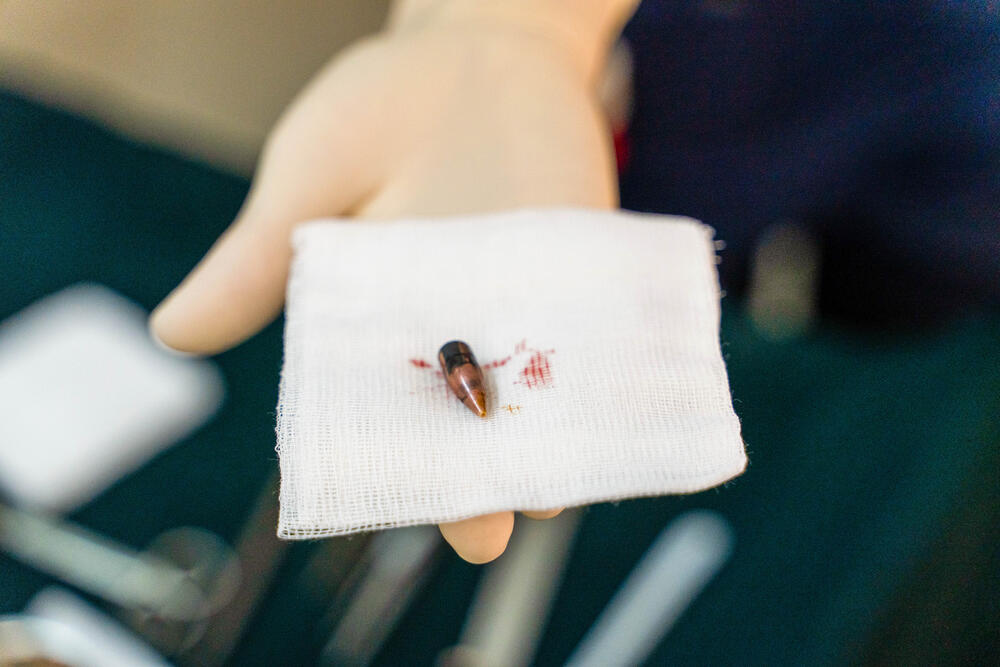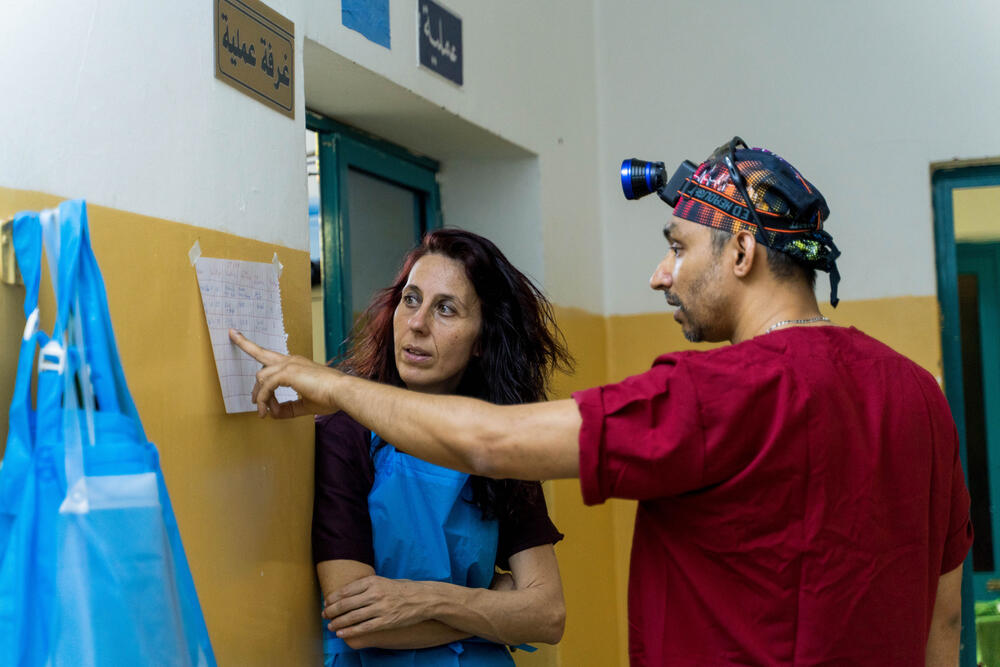Sudan: MSF surgical team operates on 240 trauma patients in a week
At a hospital in Khartoum, at the centre of Sudan’s ongoing conflict, a surgical team from Médecins Sans Frontières / Doctors Without Borders (MSF) has treated 240 trauma patients in just over a week.
Working alongside Sudanese staff and volunteers, the team have provided critical care for people who have suffered gunshot wounds or injuries resulting from explosions, consistent with ongoing airstrikes and shelling in the built-up areas of the capital.
Surgical needs
Since intense fighting broke out in the Sudanese capital Khartoum on 15 April and spread rapidly to other parts of the country, hospitals and healthcare facilities have struggled to keep operating.
Some have been badly damaged, while others are facing staff shortages with people fleeing or struggling to move around the city.
The Bashair Teaching Hospital in south Khartoum is one example of a hospital that was forced to completely close for a time.
“Doctors and nurses, but also young people from the community, made a decision to try to restart this hospital after it has closed and staff had left for their own safety,” says Will Harper, MSF Emergency Coordinator.
“When the surgical team reached south Khartoum, we found a hospital where people are really working as hard as they can and taking risks. We’ve joined them hand-in-hand to try to bring healthcare and life-saving surgical care to the people in this area.”
How can I help MSF in Sudan?
Right now, our teams in Sudan are treating patients injured or affected by the conflict. This is only possible because of donations from people like you.
By giving to our general funds today, you will be helping ensure we can respond to emergencies around the world, including in Sudan.
Please donate today to support our emergency teams.
Click here to learn more about how we spend your money
“When we arrived, the situation was chaotic,” adds MSF doctor, Hisham Eid.
“The hospital was not operational. A few doctors and volunteers were doing their best to attend to the big number of patients despite the shortage of all forms of supplies including electricity. It is getting better now and we are able to attend to many patients efficiently.”
Complex and critical
Since the MSF team started working in the hospital on 9 May, more than 240 surgical procedures have been performed, including around four major procedures a day. Complex and critical cases make up a significant proportion.
“We have seen multiple patients with gunshot wounds and stab wounds who are highly critical and would not survive without surgery,” said MSF surgeon Shahzid Majeed.
“These injuries were to the chest, to the abdomen, to the liver, to the spleen, to the kidney, to the intestine. We’ve also performed vascular reconstructive surgery here, without which the patient would have died or would have lost a limb.”
£25 could pay for 12 surgical gowns for our doctors and nurses to use during surgery
The generosity of people like you means expert MSF medical teams can deliver essential surgical care to people across the world.
Making sure that the surgical team and other medical professionals have the right supplies to keep providing life-saving medical care is difficult.
MSF and other organisations have been donating medical supplies to hospitals in Khartoum and other areas from stocks already in the country. But delays in getting supplies into Sudan and to the areas where they are most needed – both logistical and administrative – are a serious challenge.
Fuel to run generators is another major concern as the electricity supply is intermittent at best.
“We’ve been able to increase the quality of care and we’ve already been able to build some capacity within the volunteers and the staff here,” says Will.
“We’ve done multiple major surgical interventions already – complicated surgeries – because of the violence. But also increasing our post-operative care, infection control, all of those things that are a challenge in any day-to-day hospital… they’re especially a challenge when we have limits on our water, on our electricity, on our medical supply.”
With no end in sight to the conflict, more supplies and more medical staff need to reach the areas of Sudan with the greatest needs. People living through and injured as a result of the violence must have access to life-saving medical care.
MSF and the crisis in Sudan
Médecins Sans Frontières / Doctors Without Borders (MSF) teams already working in Sudan have been responding to the crisis since its first moments.
Our healthcare projects and hospitals – in some places the only medical facilities still open – are treating an influx of critical patients: the war-wounded, pregnant women in labour, and chronically ill people with nowhere else to go.

